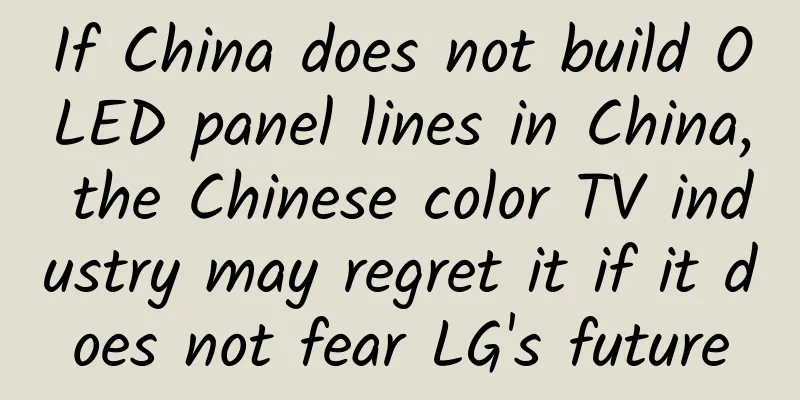Domestic brands are busy making SUVs and ignoring sedans. Is there really no risk in doing so?

|
The sales volume of the automobile industry in May was released, and the auto market increased slightly, but the recovery was not strong. For domestic automakers, the first five months of this year were still a situation of flat sedan sales and bumper SUV sales. Statistics from the China Association of Automobile Manufacturers show that from January to May 2017, a total of 4.183 million Chinese-branded passenger cars were sold, up 4.1% year-on-year, accounting for 44.4% of total passenger car sales, 1.1 percentage points higher than the same period last year; among them, 898,000 Chinese-branded sedans were sold, up 0.8% year-on-year, accounting for 19.9% of total sedan sales, 0.7 percentage points higher than the same period last year; 2.278 million Chinese-branded SUVs were sold, up 24.9% year-on-year, accounting for 60.2% of total SUV sales, 3.8 percentage points higher than the same period last year; 735,000 Chinese-branded MPVs were sold, down 21.5% year-on-year, accounting for 86.8% of total MPV sales, 4.2 percentage points lower than the same period last year. From this, we can see that in terms of total volume, the share and sales of domestic brand sedans are basically stagnant, the MPV market is declining, and only the SUV market has a good growth. Moreover, the sales of domestic brand sedans (898,000 units) and domestic SUV sales (over 22.278 million units) are like heaven and hell. Judging from the sales of specific models disclosed by the China Passenger Car Association, in the sedan sales ranking in May, only Geely Emgrand EC7 entered the top 20 list, ranking 11th with a monthly sales of 14,000 units. Chery Arrizo 5, which ranked 21st in sedan sales, sold 10,500 units. In addition, there are no domestic brand sedans with monthly sales of more than 10,000 units. Even if measured by the passing line of monthly sales of more than 5,000 units, there are not many domestic sedans with sales of more than 5,000 in May. In addition to Emgrand EC7 and Arrizo 5, there are only five sedans: Baojun 310, BYD F3, Emgrand GL, Roewe I6, and Geely Vision. Unlike the quiet sedan market, the hot SUV market has attracted many domestic brands. In the May SUV sales ranking, domestic brands accounted for 6 of the top 10 seats, and the first and second place Haval H6 and GAC Trumpchi GS4 both sold more than 30,000 units per month. The situation of sedans being cold and SUVs being hot has been going on for quite some time. Even in 2016 when domestic brands made a strong comeback, the situation was similar to the current one. Only one car, Emgrand, was among the top ten sedans, and the sales of domestic brands were mainly driven by SUVs and MPVs. On the one hand, this situation shows the flexibility and down-to-earthness of domestic brands. Thanks to consumption upgrades and Chinese consumers' preference for large, multi-functional vehicles, the SUV market segment has maintained rapid growth in recent years. As a car company, it is natural to focus on the hottest market segment. On the contrary, some very strong joint venture car companies have missed the growth opportunity of the SUV market due to insufficient attention or insufficient response to the SUV market. But on the other hand, it also shows that the room for breakthrough and the achievements made by domestic brands in this round are actually not that great. Looking at the domestic brand SUVs at the top of the sales rankings, the main price range of Haval H6, Trumpchi GS4, Geely Boyue, Roewe RX5, and Changan CS75 is between 80,000 and 120,000 yuan, while Baojun 510, Haval H2 and other models are below 100,000 yuan. In terms of quantity, the domestic brands that account for 60% of the entire SUV market are definitely proud of themselves, but in terms of specific models and prices, it is not easy to make money. Either in the market segment below 100,000 yuan, the joint venture brands feel that there is too little oil and water, and the profit is too low, so they have not yet deployed heavily. The space and configuration of the 100,000 yuan-level domestic SUV are comparable to or even surpass the 200,000 yuan SUV of the joint venture brand. Even some newly emerging domestic brand SUVs directly use the price of 60,000 to 80,000 yuan to make a 7-seater SUV, and the engine power, technology configuration, etc. are directly comparable to the 200,000 yuan SUV of the joint venture brand, which can be said to have lowered the cost to the extreme. Does this strategy sound familiar? In the early years, domestic brands also used the same strategy in the sedan market. They either entered the low-end market below 100,000 yuan, where joint venture brands have not yet lowered their profile, or they upgraded their models to higher-end configurations. Under the same price conditions, domestic models upgraded their level and space configurations to win the market with cost-effectiveness. It can be seen that behind the boom of domestic SUVs, they still haven't gotten rid of the old path of domestic sedans. They sell cars, an industrial product that integrates technology and management, at a "bargain price". Looking at the previous path of domestic sedans, as the prices of joint venture brands dropped, the days of the booming domestic sedans ended in just a few years. Although the SUV market continues to be booming, many industry insiders have a question in their minds: as joint venture brands' SUV products are strengthened and prices drop, will domestic SUVs be crushed like sedans? At present, the market price of Tiguan has dropped to around 150,000 yuan, and Haval H6 has launched classic models with prices as low as 88,800-111,800 yuan in March this year. Coupled with the generous promotion of 1 billion yuan in red envelopes from Great Wall Motors, the market terminal price has dropped to around 70,000 yuan. The price trend of these two joint venture brands and domestic SUVs indicates that the price of joint venture compact SUVs has dropped to less than 150,000 yuan, and domestic SUVs have been suppressed to less than 80,000 yuan. It is not impossible to repeat the war in the sedan field. The market for domestic brand sedans has been sluggish in recent years. On the one hand, this is because the SUV market is hot and domestic car companies are busy making SUVs and new energy vehicles; but on the other hand, there is still a gap in product quality, technology, and craftsmanship, and they are unable to compete head-on with joint venture brand sedans. Due to the booming SUV market, the failure of domestic brands in sedans has been temporarily covered up. However, domestic brands of SUVs still rely on cost-effectiveness to win the market, which is essentially the same as the previous strategy in the sedan field. Looking at the failure of Korean cars today, we know that relying on cost-effectiveness to win the market is not reliable. There will always be someone who can make cheaper than you. Today it is Chinese car companies, and tomorrow it may be Indian car companies. Even though Chinese consumers are particularly fond of SUVs, domestic SUVs can learn from the lessons of previous failures in sedans and firmly grasp the leading advantage in the SUV market. Domestic automakers that only have SUVs are still seriously biased and have to bear the risk of putting all their eggs in one basket. No matter how hot the SUV market is, the market dividend will eventually come to an end. When the SUV market turns from a blue ocean to a red ocean, there will be no new blue oceans to explore. How can domestic brands compete? I'm afraid they will have to learn from Dong Mingzhu and rely on "core technology". Domestic brands will have to make up for the lessons they haven't made up in the field of sedans sooner or later. As a winner of Toutiao's Qingyun Plan and Baijiahao's Bai+ Plan, the 2019 Baidu Digital Author of the Year, the Baijiahao's Most Popular Author in the Technology Field, the 2019 Sogou Technology and Culture Author, and the 2021 Baijiahao Quarterly Influential Creator, he has won many awards, including the 2013 Sohu Best Industry Media Person, the 2015 China New Media Entrepreneurship Competition Beijing Third Place, the 2015 Guangmang Experience Award, the 2015 China New Media Entrepreneurship Competition Finals Third Place, and the 2018 Baidu Dynamic Annual Powerful Celebrity. |
<<: The automotive industry is uneasy due to the double points policy for passenger cars
>>: Toyota considers acquiring technology companies to ensure autonomous driving
Recommend
Nine tech gadgets you can implant in your body
Given the crazy hype surrounding Apple's intr...
Are electric cars afraid of cold? How Skywell developed its "self-heating" physique
This winter is particularly cold. Various places ...
World Tuberculosis Day丨It is the second largest infectious killer in the world!
Recently, the COVID-19 pandemic has struck again....
Analysis of the marketing strategy of the wedding photography industry
Target: A national wedding photography chain clie...
APP promotion: the latest advertising price list of the top ten domestic app stores in 2015
Note: The top ten domestic Android stores are lis...
July 2023 "Science" Rumors List: Is tap water undrinkable after a heavy rain? The bigger the head, the smarter it is?
1. Thick yogurt is more nutritious gossip The thi...
The secrets to customer acquisition, conversion and repeat purchases in the P2P industry are all written here!
The P2P industry is so hot nowadays that major on...
How to invest in Douyin Qianchuan? What are the advertising techniques of Douyin Qianchuan?
How to invest in Douyin Qianchuan? What are the a...
How can tool-type products achieve long-term user growth and retention?
How can tool products break through the dilemma o...
Where does the human tissue removed during surgery go?
【Written at the end】 For most people, the most li...
A super comprehensive operation plan for Chinese Valentine's Day!
This article takes an education and training ente...
Make the map visual! She uses geographic information system to reflect the real world
The ancients used maps to depict spatial informat...
The rise of music short videos, will the next Kuaishou be born?
As early as 2014, an app called musical.ly was la...
The secrets of Douyin’s tens of millions of DOU+ placements
When operating a Tik Tok account, what you look f...
How to get official certification on Kuaishou? How to authenticate Kuaishou merchants?
How to apply for official certification v on Kuai...









